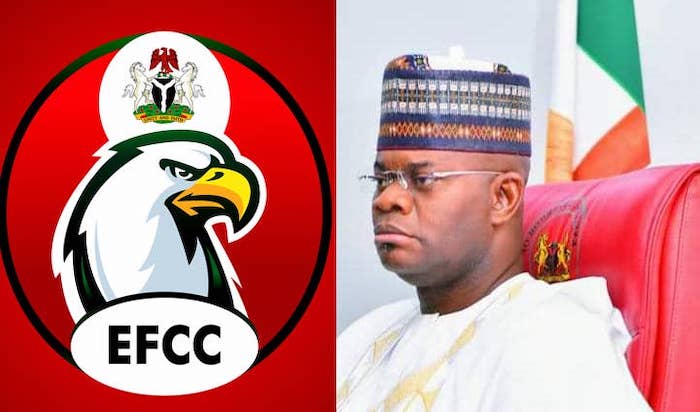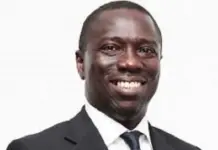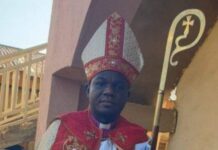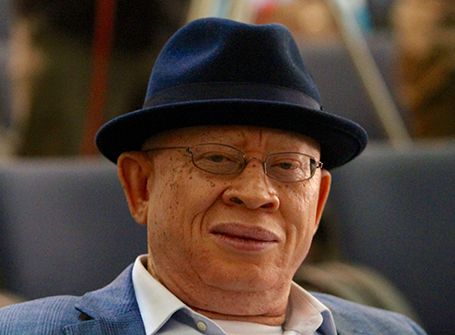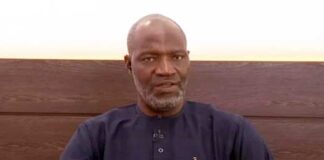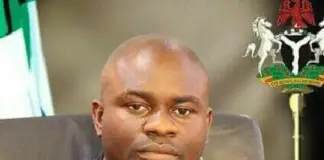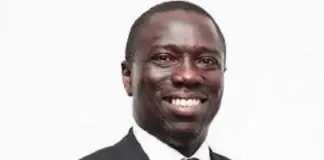🌿 Ruzu Non-Alcoholic Herbal Bitters
Ruzu Non-Alcoholic Herbal Bitters is a natural health supplement specially formulated to:
- ✅ Promote general wellness
- ✅ Detoxify the body
- ✅ Support the treatment of various ailments
Made from a powerful blend of 100% organic and medicinal herbs, Ruzu is completely alcohol-free, making it ideal for:
- 👪 All age groups
- 🌱 Health-conscious individuals
- 🌿 Anyone seeking non-alcoholic herbal remedies
Whether you're looking to boost your vitality, cleanse your system, or support healing the natural way, Ruzu Bitters offers a trusted herbal solution.
On Wednesday, the Federal High Court in Abuja was requested by the Economic and Financial Crimes Commission (EFCC) to order the trial of former Kogi State Governor Yahaya Bello in absentia.
Since his initial planned arraignment in April, Mr. Bello, who faces 19 charges of money laundering reportedly involving N80.2 billion in Kogi State monies, has consistently avoided court summonses.
The ninth court appearance that Mr. Bello has missed since then was on Wednesday.
His defense team explained his absence from the prior proceedings on September 25 by pointing to the appeals the former governor just filed at the Supreme Court.
EFCC’s prosecution attorney, Kemi Pinheiro, a Senior Advocate of Nigeria (SAN), urged trial judge Emeka Nwite to order his trial in absentia, arguing that the former governor’s failure to appear for arraignment should not be permitted to impede his trial.
According to a news release from the EFCC that Mr. Pinheiro received, the agency also asked the court to enter a plea of “not guilty” on Mr. Bello’s behalf in order to begin the trial.
He stated that a defendant’s actual presence in court is not a prerequisite for arraignment under Section 276 of the Administration of Criminal Justice Act. “The defendant has the option to waive the right to enter a guilty or not guilty plea,” the statement continued, adding that Mr. Bello’s absence shouldn’t affect the outcome of the case.
“Even if the defendant is not present, my first request is to formally enter a not guilty plea. The second is that the trial can go forward even though he is not physically present.
“If my lord enters a guilty or not guilty plea in his absence, what harm would the defendant endure? The circumstances would remain the same even if he appeared in court and entered a not guilty plea. Your lordship’s insertion of a not guilty plea is an invitation to the prosecution to come and establish the truth of the accusations, the prosecutor stated.
Mr. Pinheiro urged the court to avoid giving up and not try the former governor in absentia, claiming that his unwillingness to show up for his arraignment was malicious.
“A court can never show that it is powerless. Since civilization is founded on the rule of law, that would be a sign of anarchy. “The foundation of the rule of law will be undermined if the court exhibits helplessness,” he stated.
Further arguing that justice is a three-way process, the EFCC’s attorney reminded the court that a defendant’s unwillingness to participate in the court’s procedures should not impede his trial. “A defendant’s refusal to participate in the process should not be used as an excuse to hold a criminal trial hostage, shorten it, or impede it. Justice for the defendant, justice for the prosecution, which has gathered witnesses, and justice for society are all interdependent.
The court adjourns for a decision after the defense team responds.
Michael Adoyi, the defense attorney, argued against the prosecution’s application, pointing to an earlier court ruling that demanded the defendant’s presence before any applications could be considered.
He stated, “Our first point of response to the application made by the learned senior counsel to the complainant is that the application is made contrary to the present order of this honorable court, even made this morning – that no application can be entertained by this court in the absence of the defendant’s arraignment.”
Read Also: Breaking: New Prices Emerge as Tinubu Gov’t Increases Petrol Pump Rates
However, Mr. Pinheiro of the EFCC urged the court to dismiss the defense’s argument and move forward with accepting the defendant’s plea in absentia.
He promised that it wouldn’t violate the defendant’s rights or the case’s fairness.
postponed for a decision after hearing from all parties, but stated that “it may not be possible to deliver this ruling this year.”
Mr. Pinheiro suggested that the case be postponed until after the arraignment and ruling.
The judge granted the request and set the date for January 21, 2025.
Bello’s legal issues
at addition to the money laundering case at the Federal High Court, Mr. Bello is facing another corruption case in the Federal Capital Territory (FCT) High Court. In this case, he has also rejected a summons on fraud charges totaling N110 billion.
Despite being summoned by trial judge Maryanne Anenih on October 3, Mr. Bello declined to appear before the FCT High Court on October 24.
In addition, she gave the EFCC authority to serve the charges and related documents to the defendant via replacement rather than in person.
On September 25, while rushing to arraign Mr. Bello in the separate N80.2 billion money laundering case before the Federal High Court in Abuja, the EFCC filed the fraud charges involving an alleged N110 billion in Kogi State government monies.
The EFCC charged Mr. Bello and two other people, Abdulsalami Hudu and Umar Oricha, at the FCT High Court.
Allegations of criminal breach of trust concerning the alleged diversion of over N110 billion entrusted to Mr. Bello’s care as governor of Kogi State are at the heart of the case’s 16 counts. According to the anti-graft agency, during his first year in office in 2016, Mr. Bello and his co-defendants misappropriated this sum.
Rotimi Oyedepo, a Senior Advocate of Nigeria (SAN), begged Judge Mrs. Anenih to postpone the matter till the 14th of November, when the summons she sent to the former governor expires, after Mr. Bello failed to appear in court on Thursday. The request was approved by the judge.

